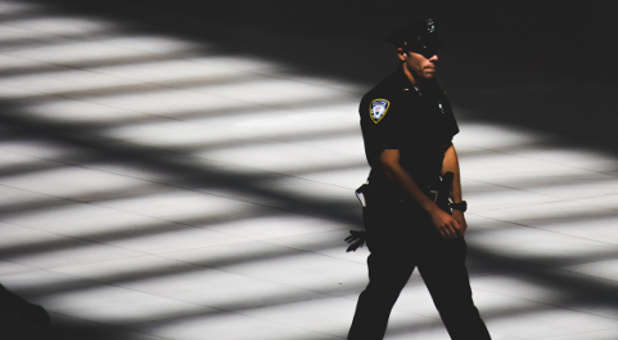Study: Most Churches Have Plan for Potential Gunman
In the aftermath of several high-profile church shootings, most Protestant pastors say their congregations have taken some precautions to protect those in attendance.
Since 2000, 19 fatal shootings have taken place at Christian churches, while gunmen have also taken lives at other religious sites like Jewish synagogues, a Sikh temple and an Amish school.
Around 4 in 5 Protestant pastors (80%) say their church has some type of security measure in place when they gather for worship, according to a survey from Nashville-based LifeWay Research.
“Churches are some of the most common gatherings in any community, and that makes them targets,” said Scott McConnell, executive director of LifeWay Research. “Most churches understand this and have responded in some way.”
Security Specifics
The most common form of preparation is making an intentional plan. Almost 2 in 3 pastors (62%) say their church has an intentional plan for an active shooter situation.
The more people who show up to worship services each week, the more likely the church is to have made plans for a potential gunman.
Pastors of churches with 250 or more in attendance (77%) and those with 100 to 249 (74%) are more likely to have an intentional plan than those with 50 to 99 in attendance (58%) or those with less than 50 in their worship service each week (45%).
More than a quarter of churches (28%) have radio communication among security personnel.
African-American pastors (47%) and pastors of other ethnicities (46%) are almost twice as likely as white pastors (25%) to take this step.
The question of guns in church is very much a live debate among pastors, as close to half of pastors (45%) say part of their security measures include having armed church members.
Combining this with the percentages who say they have uniformed police officers or armed security personnel on site, 51% intentionally have firearms at their worship services as part of their security measures.
Evangelical pastors (54%) are more likely than mainline pastors (34%) to say they have armed church members.
Half of pastors in the South (51%) and West (46%) say this is the case compared to a third of those in the Northeast (33%).
Pentecostal (71%), Baptist (65%) and Church of Christ pastors (53%) are also more likely than Methodist (32%), Lutheran (27%) and Presbyterian or Reformed pastors (27%) to say they have armed church members as part of their security measures.
Other churches place their emphasis on keeping all guns away from the worship service.
More than a quarter (27%) have a no-firearms policy for the building where they meet and 3% have metal detectors at entrances to screen for weapons.
African-American pastors are the most likely to implement these strategies, with 50% saying they have a no-firearms policy and 8% deploying metal detectors.
Almost 1 in 5 pastors (18%) say their church has taken none of the precautions asked about in the survey, while 2% aren’t sure.
“While methods vary, most churches start with the resources they have to prepare for what they hope will never happen,” said McConnell. “With planning, a church can be prepared without being distracted or paralyzed by the threat. Pastors are trying to balance two responsibilities—protect those on the inside, while being as welcoming as possible to those on the outside.”
Police Protection
In the survey, which took place prior to the West Freeway Church of Christ shooting in December 2019, close to a quarter of Protestant pastors (23%) say they have armed private security on site. Additionally, 6% say they have uniformed police officers on site as an added security measure.
For the vast majority of churchgoers (73%), the presence of a uniformed policeman or security guard at church makes them feel safer, with 37% saying they feel much safer.
One in 5 (20%) aren’t sure and 8% say it makes them feel less safe.
African-American pastors are the most likely to say they have both armed private security personnel (41%) and uniformed police officers (18%) on site.
However, non-white churchgoers are more likely than white churchgoers to say they feel less safe at church seeing those individuals during worship services.
Around 1 in 10 non-white churchgoers (10%) say they feel less safe with uniformed police and security guards at church compared to 6% of white churchgoers.
Female churchgoers, on the other hand, are more likely than their male counterparts to say those visible individuals make them feel safer (75% to 69%).
Churches with 250 or more in attendance are the most likely to say they have armed private security personnel (43%) or uniformed police officers (26%).
Those who attend such churches are also the most likely to say seeing police officers and security guards at church makes them feel safer (83%).
“Any organization that has relatively large gatherings of people has a responsibility for the safety of those gathered,” McConnell said. “In considering security, church leaders have to consider methods, costs, risks and how those safety measures potentially impact their ministry.” {eoa}
Aaron Earls is a writer for LifeWay Christian Resources.
















































